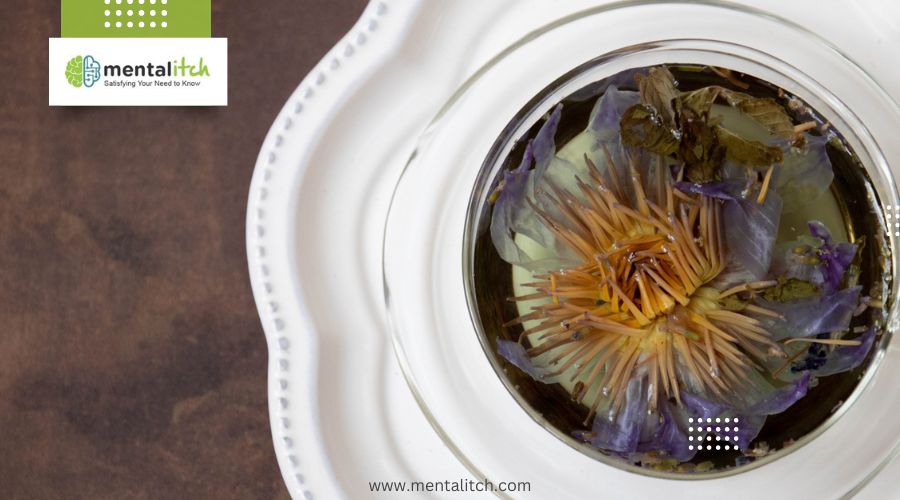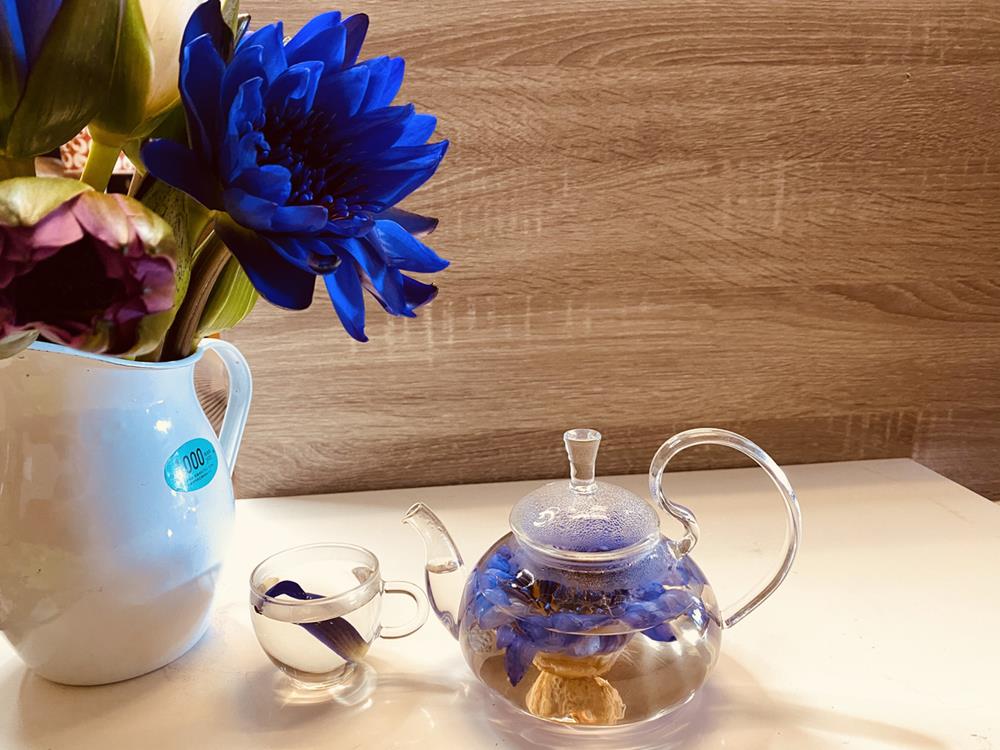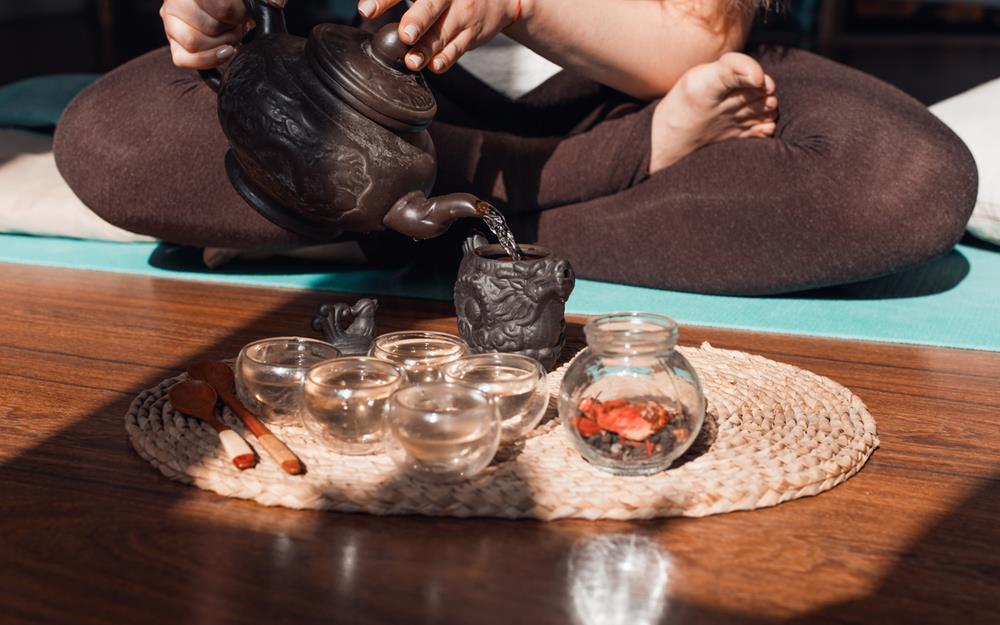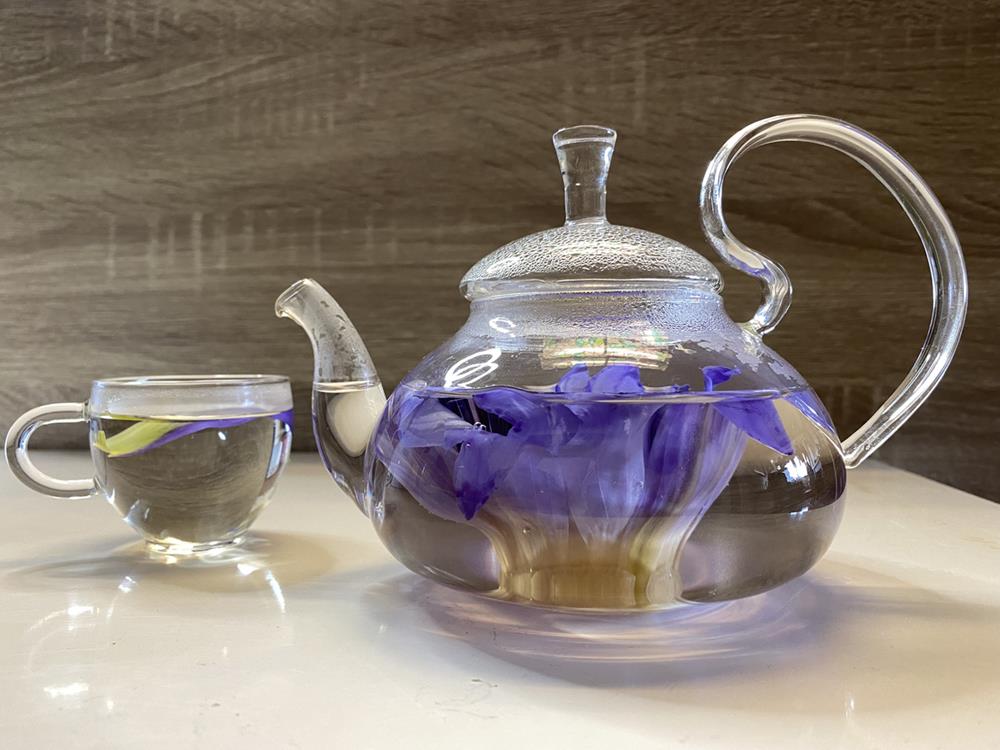Lotus tea is a special kind of tea that mixes the calming effects of tea with the beautiful meaning of the lotus flower. Picture yourself relaxing in a peaceful water setting, drinking a warm cup of tea that not only makes you feel calm but also ties you to a long history of traditions. In this beginner’s guide, we’re going to explore everything about lotus tea, from its deep cultural significance to how you can make your own cup at home. When you add some highly-rated organic black tea to the mix, you get an amazing drink that tastes great and is good for you, too. Let’s start this flavorful adventure into the world of lotus tea.
Societal Meaning of Lotus Flower Tea
The Cultural Significance of the Lotus
The lotus flower holds a special place in many cultures around the world, symbolizing purity, enlightenment, and rebirth. Its ability to rise from the murky waters and bloom untouched by the mud has made it a powerful symbol of purity and resilience. This symbolism extends to lotus flower tea, transforming it from a simple beverage into a drink laden with meaning. When people sip on lotus tea, they’re not just enjoying a refreshing drink; they’re connecting with a symbol revered by civilizations for thousands of years.
Lotus Tea in Traditional Ceremonies
In many Asian cultures, lotus tea plays a crucial role in religious and spiritual ceremonies. Its significance is deeply rooted in Buddhist traditions, where the lotus flower represents the journey to enlightenment, mirroring the human condition’s potential to rise above suffering and attain wisdom. Drinking lotus tea in these contexts is not just a matter of taste or health; it’s a spiritual act that connects individuals to their heritage and the profound meanings embedded in their culture.
Modern Wellness and Lotus Tea
Today, the symbolism of the lotus flower—and, by extension, lotus tea—has permeated the realm of wellness and mindfulness. In a world that’s increasingly looking towards holistic health solutions, lotus tea is celebrated not just for its potential health benefits but also for the mental and spiritual calm it offers. It’s become a symbol of self-care, encouraging moments of reflection and tranquility in our fast-paced lives. This blend of cultural heritage and modern wellness practices showcases the timeless relevance of the lotus and its enduring appeal as a symbol of peace, purity, and personal growth.
How Lotus Tea is Brewed
Brewing lotus tea is both an art and a simple pleasure. This unique beverage can be made from different parts of the lotus plant, including the leaves, flowers, or even the seeds. Heres how you can brew your own cup of lotus tea, ensuring a delightful experience thats as rewarding to make as it is to drink.
Choosing Your Lotus Tea
- Dried Lotus Leaves: Often used for a subtle, refreshing taste.
- Lotus Flower Buds: Offer a more floral and aromatic experience.
- Lotus Seeds: These can be brewed or added to other teas for a unique flavor.
Step-by-Step Brewing Guide
- Preparation: Start with high-quality, dried lotus tea. If you’re using leaves or flowers, one to two tablespoons will suffice for one cup of tea. Lotus seeds might require a bit more preparation, such as soaking, depending on your recipe.
- Water Temperature: Boil water, then let it cool to about 80-90°C (176-194°F). The exact temperature might vary based on personal preference and the specific type of lotus tea you’re using. Higher temperatures can extract more flavor but might also bring out bitterness in certain types of lotus parts.
- Steeping: Place your lotus tea in a teapot or a cup. Pour the hot water over the tea and let it steep for 3-5 minutes. For a stronger flavor, you can steep it longer, but keep an eye on the taste to avoid bitterness.
- Serving: Once steeped to your liking, pour the tea through a strainer into your cup. This is especially important if you’re using loose leaves or petals to ensure a smooth drinking experience.
- Enjoying: Sip your lotus tea slowly, enjoying the unique flavors and the tranquility it brings. Lotus tea is known for its calming properties, making it perfect for a quiet moment of reflection.
Tips for Enhancing Your Tea
- Sweetening: While lotus tea is naturally sweet, you can add honey or a slice of lemon to enhance its flavor.
- Blending: Lotus tea blends well with other teas, such as highly-rated organic black tea, for a more complex flavor profile.
- Cold Brewing: For a refreshing summer drink, try cold-brewing lotus tea by steeping it in cold water for several hours or overnight in the refrigerator.
Brewing lotus tea is a simple process that invites experimentation. Whether you prefer the pure taste of lotus alone or mixed with other teas for added complexity, the key is to enjoy the brewing and the drinking as moments of calm in your day.
Benefits of Lotus Tea to Your Health
Lotus tea is more than just a pleasant beverage; its imbued with a variety of health benefits that can contribute to overall wellness. From its soothing effects on the mind to its contributions to physical health, heres a look at some of the key benefits of incorporating lotus tea into your routine.
- Antioxidant Properties: Lotus tea is rich in antioxidants, which help combat free radicals in the body. Free radicals are unstable molecules that can cause oxidative stress, leading to cell damage and various health issues. The antioxidant properties of lotus tea can also support healthy aging by protecting the skin from premature aging and promoting cellular health.
- Stress Relief and Relaxation: Drinking lotus tea can have a calming effect on the mind, reducing stress and anxiety. Its natural compounds can help soothe the nervous system, making it a great choice for relaxation and mental well-being. The calming properties of lotus tea can also contribute to better sleep quality, making it a beneficial drink for those struggling with insomnia or restless nights.
- Digestive Health: Lotus tea can help improve digestion and alleviate symptoms of indigestion. It has been traditionally used to soothe the stomach and promote healthy digestive function. The teas natural compounds can assist in detoxifying the body, supporting liver health, and enhancing the bodys ability to flush out toxins.
- Heart Health and Blood Sugar Regulation: Lotus tea contains components that can contribute to heart health by improving blood circulation and reducing blood pressure. Some studies suggest that lotus tea can help regulate blood sugar levels, making it a beneficial drink for those managing diabetes or at risk of the condition.
- Weight Management: Regular consumption of lotus tea can also aid in weight management. Its metabolism-boosting properties can help the body burn fats more efficiently, contributing to weight loss efforts.
A Note of Caution
While lotus tea offers numerous health benefits, its important to consume it in moderation. Like any herbal tea, its best to integrate it as part of a balanced diet. Individuals with specific health conditions or those who are pregnant should consult with a healthcare provider before adding lotus tea to their regimen.
Incorporating lotus tea into your daily routine can be a delightful way to enjoy its unique flavor while reaping its health benefits. Whether youre looking for a moment of tranquility or seeking to enhance your health, lotus tea offers a blend of benefits that can enrich your wellness journey.
When to Drink Lotus Leaf Tea
Finding the perfect time to enjoy lotus leaf tea can enhance its benefits and integrate seamlessly into your daily routine. This beverage isn’t just about its flavor but also the sense of calm and wellness it can bring to your day. Here’s how to determine the best times to drink lotus leaf tea for both relaxation and health benefits.
1. For Relaxation and Stress Relief
- Evening Wind Down: Drinking lotus tea in the evening can be a wonderful way to relax and unwind after a long day. Its calming properties can help ease stress and prepare your mind and body for a restful night’s sleep.
- Meditative Moments: Incorporating lotus tea into your meditation or mindfulness practice can enhance the experience. The act of sipping tea can be meditative in itself, promoting a sense of peace and presence.
2. For Health Benefits
- Morning Boost: While lotus tea is not caffeinated, its revitalizing properties can make it a gentle alternative to kickstart your day without the jittery effects of coffee. It’s particularly beneficial for those looking to start their day with a clear mind and a balanced body.
- Before or After Meals: Drinking lotus tea around meal times can aid digestion and promote a healthy metabolism. Its ability to help with digestion makes it a good choice for a post-meal beverage, while its potential for regulating blood sugar levels may make it beneficial before meals for those managing their glucose.
3. For Weight Management
- Before Workouts: Some people find drinking lotus tea before exercising can provide an extra boost of energy and aid in fat burning, thanks to its metabolism-enhancing properties. However, as it’s caffeine-free, it won’t lead to the same energy spike (or crash) as other pre-workout drinks.
- Throughout the Day: Regular consumption of lotus tea, especially before meals, can contribute to a feeling of fullness, potentially reducing overeating and supporting weight management goals.
4. Special Considerations
- Listening to Your Body: Everyone’s body reacts differently to herbal teas. It’s important to pay attention to how your body responds to lotus tea and adjust your drinking habits accordingly.
- Balance and Moderation: While lotus tea is beneficial, it’s crucial to consume it in moderation as part of a balanced diet. Too much of any herbal tea can lead to undesirable effects.
Choosing the right time to drink lotus tea can maximize its benefits and make it a cherished part of your daily routine. Whether youre seeking mental clarity, physical wellness, or a moment of tranquility, lotus tea can be a versatile companion throughout your day.
Conclusion
Remember that lotus tea is much more than just a refreshing drink. With its rich cultural significance and a multitude of health benefits, lotus tea offers a unique experience for both the mind and body. Whether you’re enjoying it for relaxation, health, or as part of a wellness routine, lotus tea is a delightful choice that brings tranquility and balance into your daily life. So, the next time you steep a cup, take a moment to appreciate the ancient traditions and natural goodness infused in every sip. Happy brewing!





